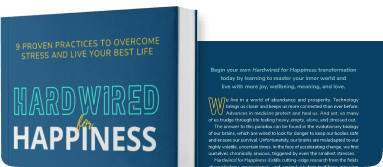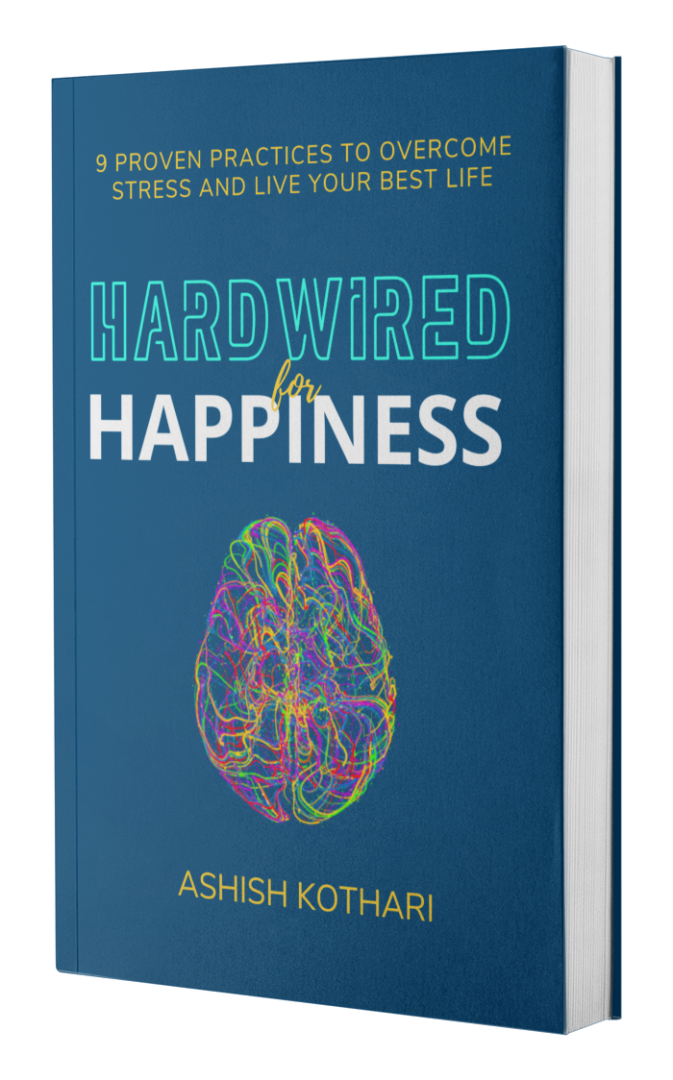Well-Being Is a Strategic Advantage—And the Future of High Performance

I recently spoke with Karen Guggenheim CEO & Founder of WOHASU (an organization and movement elevating wellbeing awareness)
Karen is someone who embodies the deeper meaning of happiness—not as a fleeting emotion, but as a framework for living. A practice. A deliberate design choice we make every day, even through hardship.
We talked about what it means to truly flourish. Not just as individuals, but as leaders, parents, and communities. Not just in our personal lives, but in our organizations and systems.
Here are four powerful insights that emerged from that conversation—along with simple actions to help you bring more meaning, energy, and joy into your life and leadership.
1. Happiness Is a Framework, Not a Feeling
One of the most striking things Karen said early in our conversation was this:
“I didn’t choose to just feel positive emotions. I chose to architect my life under the framework of happiness.”
That distinction is everything.

Many of us were raised to think of happiness as something that happens to us—if we work hard enough, succeed often enough, or check off enough goals. But happiness isn’t a reward. It’s a design. A practice. A set of intentional choices we make in how we respond, connect, and grow.
I often say: Happiness is not the opposite of sadness. It’s the antidote to suffering.
It’s not about ignoring pain—it’s about integrating it into a more hopeful, meaningful path forward.
Try this:
- Ask yourself: How do I want my life to feel—not just what do I want to achieve?
- Build a to-be list alongside your to-do list. Do you want to be more present? More kind? More grateful? Start practicing that today.
2. We’re Losing Human Skills—Right When We Need Them Most
With AI automating more of the tactical and analytical work, the real differentiators in business and leadership are human skills—empathy, creativity, presence, compassion.
And yet, as Karen put it:
“We’re not building tough people—we’re building fragile ones. Because we’re overburdening them constantly.”
When employees are stretched thin, overwhelmed, or emotionally disconnected, everything suffers:
- Innovation slows down
- Collaboration breaks down
- Clients feel the tension before leadership even sees it
In my own journey at McKinsey, I saw this firsthand. When I redesigned how I worked, integrating wellbeing practices, I didn’t just feel better. My productivity jumped by 40–50%. My creativity expanded. My client impact deepened. My team started growing in ways I’d never seen before.
This isn’t a “nice to have.” This is the future of high performance.
Try this (for leaders):
- Make well-being a strategic pillar, right alongside growth and customer experience.
- Start meetings with: What’s draining our energy right now? What’s fueling it?
- Redefine performance to include sustainability, not just speed.
Try this (for individuals):
- Audit your calendar: Where can you add 10-minute “recovery blocks” between meetings?
- Practice single-tasking at least once a day. Give one thing your full attention.
3. Children Are Present. Adults Are Performing.
“Children are just happy. They giggle. They smile. Something has to happen to make them cry. But adults? Adults need a reason to be happy.” – Ashish.
Somewhere along the way, we lose that.
We start delaying happiness until the next milestone. Once I finish this project… once I make that promotion… once we close this round… And in doing so, we trade joy for achievement and aliveness for approval.
That’s a dangerous trade. Because without presence, nothing is enough.
We need to stop asking only what we’re building—and start asking how we’re living.
Try this:
- Schedule one hour this week for unstructured joy—no goal, no purpose. Just play, explore, or reflect.
- Ask your team or family: What’s one moment this week that made you feel alive?
4. Forgiveness Isn’t Weakness—It’s Momentum
One of the most resonant parts of our conversation was on the topic of forgiveness.

Karen said something that really stayed with me:
“Once you have the willingness, or even ask the question, you’ve already kind of made the decision.”
Forgiveness isn’t a single act. It’s a reframe. A moment where we shift from staying stuck to choosing something more.
In our minds, we often justify our pain: They were wrong. They hurt me. I deserve to be angry.
And all of that may be true.
But unless we’re pulled toward something greater—peace, joy, purpose—we stay trapped. We orbit the same pain over and over again.
I often describe it as the gravitational pull of staying stuck. And unless we have a stronger gravitational force—a compelling “why”—we never escape that orbit.
Forgiveness isn’t about accepting what happened. It’s about reclaiming the energy we’ve been spending reliving it.
Try this:
- If there’s someone you’re struggling to forgive, start with this: I want to forgive. I don’t know how yet. But I’m willing.
- Get clear on what you want instead: peace, clarity, freedom. Let that vision pull you forward.
The Real Challenge for Leaders (and All of Us)
As we wrapped up the conversation, Karen offered a call to action I think every leader should take seriously:
“Make well-being a strategic pillar. Place it first in your decisions—as a government, a company, or a school.”
It’s not enough to talk about burnout. We need to change the conditions that create it.
And that starts by putting human flourishing at the center of how we define success.
Not just for ourselves. But for the people we lead. The children we raise. The organizations we shape. The world we hope to leave behind.
Because if we want a better future, we can’t wait to get there to start being happy.
We build it now. Choice by choice. Practice by practice. Moment by moment.
Learn more about Karen on Linkedin.
Listen to the podcast with Ashish and Karen below. You can also listen on Apple Podcasts.
Access and subscribe to all of the episodes of the Flourishing Edge Podcast here.
Make Flourishing Your Competitive Edge.


